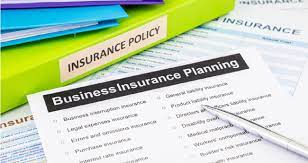The tiniest mishap might put your business on hold, but this does not have to be the case. The right general liability insurance can help protect your small business future in the case of a liability claim. For that purpose, we shall deliberate on general liability insurance for small business in full detail.
What is General Liability Insurance
General liability insurance safeguards your personal and commercial assets in the event that a third party is injured or property is damaged as a result of your organization, its operations, or its goods. The cost of the loss or injury is covered by the insurance.
These plans, also known as business liability insurance, kick in when a customer files a claim against a company and the company is deemed to be at fault for the incident. Medical and legal fees, monetary losses, and property damage or losses are normally covered by general liability insurance. Though the exact coverage will vary depending on the policy you purchase.
General liability insurance for small business
When it comes to your small business’s premises, operations, products, and finished activities, as well as advertising and personal injury liability, accidents can happen when you least expect them. In fact, general liability insurance for small businesses is expressly designed to protect against liability claims for physical injury and property damage. Arising from your premises, activities, goods, finished operations, as well as advertising and personal injury liabilities.
Here are just a few examples of small business general liability insurance claims situations:
- A customer with mobility challenges slips in your retail store and fractures their femur bone.
- A construction worker accidentally damages the building next door to the one they are contracted to work on.
- A licensed plumber installs a water tank that leaks and damages the contents of a neighboring room.
Overview
Accidents happen all the time, and business owners must be covered in the event of one in the workplace. It’s critical for business owners to protect themselves. By ensuring they have the insurance they need to cover all of the hazards that their company faces. After all, not having the correct kinds of insurance is the same as not having any at all, leaving firms vulnerable to a variety of losses.
Best General Liability Insurance For Small Business
We analyzed more than a dozen of the country’s leading insurance companies. As well as many brokers based on the types of coverage they offer, the sectors they service, their financial stability ratings, and customer satisfaction.
- State Farm
- Hiscox
- Nationwide
- The Hartford
- Travelers
- Liberty Mutual
- Progressive Commercial
#1. State Farm
We chose State Farm as the best overall small business insurance company. Because it offers multiple types of coverage through a nationwide network of agents. What’s more, State Farm agents are business owners themselves, so they understand the needs of other small business owners.
G.J. Mecherle, a retired farmer and insurance salesman, founded State Farm in 1922. State Farm has around 100 products, including financial services, banking, and commercial insurance. While it is best known for auto and home insurance.
#2. Hiscox
Hiscox wins the top spot for independent contractors because they have products designed and priced specifically for independent contractors.
This began as an underwriter in Lloyd’s market in 1901. Its headquarters is in Bermuda and trades on the London Stock Exchange. But it has operations in 14 nations and all 50 states, as well as the District of Columbia.
Standard liability coverage limits at Hiscox are up to $2 million, with greater levels available with underwriting clearance. The organization offers coverage for a variety of industries and policy types for monthly prices that can be relatively modest, to begin with. Making it a cost-effective option for independent contractors and micro businesses. Salons, fitness instructors, consultants, therapists, janitors, and acupuncturists are among the 180+ businesses that can benefit from customized solutions.
#3. Nationwide
We chose Nationwide as our best general liability provider because the company is business insurance. That focuses on simple, straightforward insurance solutions, which is ideal for businesses with high-risk, general liability needs. Nationwide also received an A+ Superior rating from AM Best for financial stability.3
Farm Bureau Mutual Automobile Insurance Company, which was founded in 1926, was the forerunner to Nationwide. During its efforts to expand coverage to all states from coast to coast, the company changed its name Nationwide in 1955. Except for Hawaii and Alaska, every state has an agent.
#4. Hartford
Because of the unique benefits, it provides employers, like pay-as-you-go programs, we chose The Hartford as our top workers’ compensation supplier. Because expenses are based on real wages rather than estimates. These plans dramatically reduce the chances of overpaying or underpaying premiums.
Hartford began as a fire insurance firm in 1810. Since then, it has expanded to become a Fortune 500 firm with over a million small business customers. 4 AM Best has given The Hartford, a Connecticut-based firm, an A+ (Superior) rating.5
General liability, commercial auto, commercial flood, data breach coverage, commercial umbrella, company income, and professional liability coverage are among the various types of business insurance services by Hartford. Arborists, pet groomers, restaurants, printing, and publishing are among the more than 20 industry specialties of the company.
#5. Travelers
The Travelers were our best commercial property insurer because it has vast expertise in the industry, having been voted the top commercial property insurance company in the United States by premiums written for numerous years and narrowly missing out on a first place in 2023.
Travelers is another illustrious corporation with roots dating back to 1864 when one of its founders began selling two-cent accident insurance. The current company start in 2004 when Travelers and St. Paul Companies merged, and it has an A++ rating from AM Best.8
In addition, Travelers offer insurance solutions for businesses in more than 20 industries, including transportation, manufacturing, construction, retail, and government agencies. However, the firm has acquired a strong reputation in the field of commercial property insurance.
According to the Insurance Information Institute, the firm writes so much property insurance that it is the number one writer of commercial property insurance in the United States in 2019.
7 Other types of business insurance offered by the corporation include commercial car, cyber liability, surety bonds, and workers’ compensation, with pricing varying by industry.
#6. Liberty Mutual
We chose Liberty Mutual as the best insurer because the company has a fast and easy process with a streamlined business owner’s policy available for many different industries that combine coverage in one cost-effective policy.
We chose Liberty Mutual as our best provider of business owners’ policies (BOPs) that combine multiple types of coverage into a single policy protecting against liability, property loss, and loss of income. Liberty Mutual is in a unique position to help large numbers of business owners for a reasonable price, regardless of industry.
Liberty Mutual also advertises 24-hour claims assistance through its nationwide contractor referral network. The company is always for having adjusters around the country that can help settle claims quickly, even in rural communities. Liberty has been accredited by the BBB since 1931 and has an A+ rating.
#7. Progressive Commercial
We chose Progressive as our best insurer for commercial auto insurance because it is the largest specialist in this space and knows how to handle business auto claims better than anyone.
Progressive is the largest commercial auto insurance in the United States, it start in 1937. While commercial vehicle insurance is one of Progressive’s primary focus areas, the company also provides general liability, workers’ compensation, professional liability, and cyber insurance. Progressive offers insurance for 61 different businesses and occupations, including gyms, yoga instructors, auto mechanics, painters, and beauty salons, among others.
When your firm has general liability coverage or a business owner’s policy in place, Progressive offers a discount on commercial auto coverage, even if the general liability or business owner’s insurance is with a different carrier. Business owners can save up to 15% by prepaying their annual rates in full.
Do I Need Insurance as a Small Business Owner?
Should I Get Business Insurance for My Small Company? You are not required to get small business insurance in order to run your company; nonetheless, having this insurance can shield you from many of the usual dangers that could arise during the course of running your company.
Which Coverage Would a Business Owner Need?
General liability insurance is essential for any and all small businesses. This liability coverage offers protection against typical situations involving customers or clients, such as personal injuries, property damage, and bodily harm. Specifically covered are bodily injuries.
What Happens if a Business Has No Insurance?
In the event of an accident, not only will the company be prosecuted for not having insurance, but it will also continue to be liable to the person who was injured and will be required to pay all of the compensation out of its own funds, in addition to its own legal costs and the costs of the claimant. In many instances, this would lead to the corporation giving up its business altogether.
General Liability Business Insurance Cost
The cost of general liability insurance varies based on your business operations and policy limits, among other factors. Small businesses pay about $40 per month for this policy
Regardless of policy limits, the median cost of general liability insurance is $42 per month (about $500 annually) for Insureon customers. The median cost offers a more accurate estimate of what your business is likely to pay than the average business insurance cost because it excludes outlier high and low premiums.
Most small business owners (48%) pay between $300 and $600 annually for their policies, and 17% pay less than $300.
What is Covered by General Liability Insurance?
In most cases, general liability insurance plans will protect both you and your company against claims made by third parties alleging that your business’s products, services, or activities caused them to suffer bodily injury or property damage. It is also possible that it will cover you in the event that you are held liable for damages to the property of your landlord.
What is the Difference Between General Liability Insurance and Commercial Liability Insurance?
In contrast to commercial property coverage, general liability insurance only protects you against financial loss for injuries and property damage that your company is responsible for causing to a third party. It does not cover any damage to the property owned by your company or any injuries sustained by your personnel.
Is General Liability Insurance Paid Monthly?
According to the results of a survey that we conducted with 50,000 owners of small businesses, the average cost of general liability insurance is less than $30 per month. We also discovered that 95% of the small business owners polled pay less than $50 per month for general liability insurance, while only 1% of the small firms pay more than $100 per month for insurance.
Do I Need Both General Liability and Professional Liability?
If you are exposed to both kinds of dangers, then you absolutely do need to purchase both kinds of insurance. In addition, as a condition of your contract, an employer or customer might demand that you have professional liability insurance, general liability insurance, or both of these types of insurance policies.
FAQ
Does every business need general liability insurance?
Every small business needs general liability insurance. This policy provides protection against common customer or client incidents, including bodily injuries, property damage, and advertising injuries. An accident involving a customer can lead to huge legal bills, making this an important policy for any business.
What types of insurance are not recommended?
5 Types of Insurance You Don’t Need
- Mortgage Life Insurance. There are some insurance agents that will try to convince you that you need mortgage life insurance. …
- Identity Theft Insurance. …
- Cancer Insurance. …
- Payment protection on your credit card. …
- Collision coverage on older cars.
What kind of pre existing conditions are not covered?
Medical conditions such as high blood pressure, diabetes, thyroid, asthma, depression, etc., are considered pre-existing ailments






